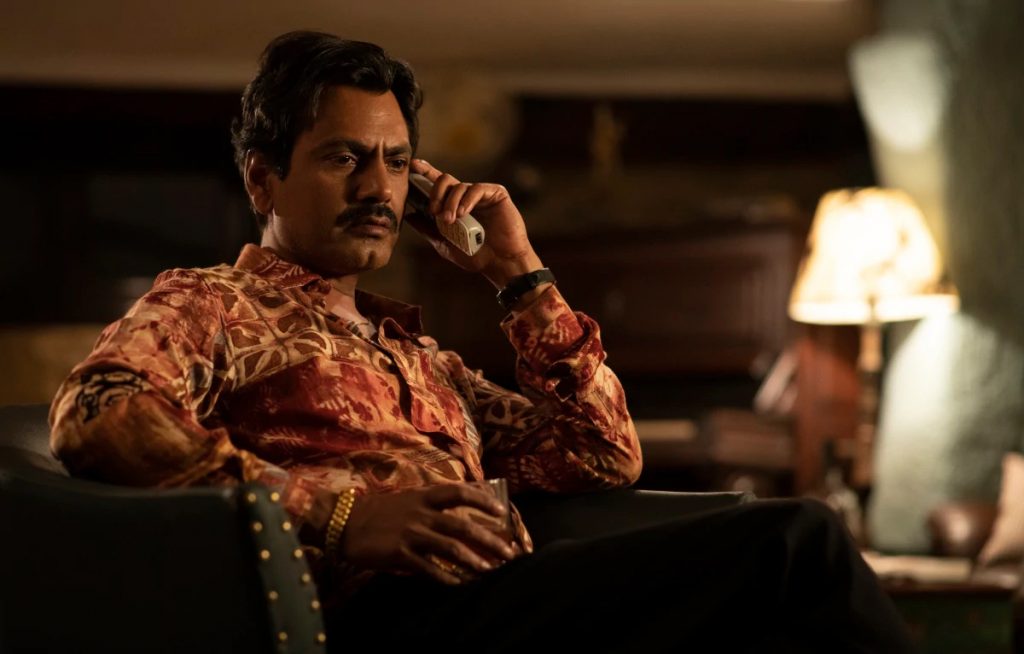The last time we saw Sacred Games, police officer Sartaj Singh had just learned about an impending nuclear threat that threatened all of Mumbai. The second season sees Sartaj (Said Ali Khan) hunting for the bomb, and also catches up with Ganesh Gaitonde (Nawajuddin Siddiqui) as he is sprung out of jail.
Gaitonde starts out wanting revenge against his old rival, Isa, as he sets up a new criminal empire in Kenya. He’s also forced to carry out RAW operative Yadav’s wishes, who is after a Pakistani terrorist named Shahid Khan (Ranvir Shorey). As Gaitonde ages, however, he starts to lose his way, and eventually, he ends up at a mysterious ashram in Croatia where he seeks tutelage from Guruji (Pankaj Tripathi), an enigmatic spiritual leader who preaches about the need to bring the world into ‘Satya Yug’ again.
As Sartaj investigates the bomb threat in the present day, he also explores a newer ashram in Mumbai, which is headed by Guruji’s most trusted confidante, Batya Abelman (Kalki Koechlin). There, he ends up confronting his own fears regarding his marriage, and his doubts about his father. Similarly, Gaitonde also confronts his own father issues as he gets closer to Guruji over the years.

The second season offers a more complex narrative than the first season, and while it works for the most part, there are times it doesn’t. Neeraj Ghaywan directs the present day scenes, whereas Anurag Kashyap tackles Gaitonde’s story. There stories blend together well for the most part: there are several scenes of symmetry and callbacks that show the caliber of these directors’ craft. Gaitonde’s scenes are more crisp from a dialogue perspective: everyone has an edge to their voices, ready to clash with someone else at the slightest hint of provocation. However, sometimes there is a rush to catch up to the present day narrative, as the story skips over the 90s in one episode.
While Gaitonde is still dominant, although struggling with his lack of faith, Sartaj is beset at all sides by both the investigation and his own problems.
At the ashram, Batya offers Sartaj a custom drug that quiets his fears, but soon creates a dependency (and causes him to be suspended from the SIT taskforce). Throughout the season, we are keenly aware that Sartaj is an ordinary man; at times he is overwhelmed, but by the end, he rallies and tries to do the right thing.
The otherworldly aspect of the doomsday cult run by Guruji makes this season stand out. It’s also a fine contrast to the usual violence, including religious discrimination, where a Muslim boy is beaten to death by a mob. One question haunts Sartaj: what good is there in the world that he can save from the bomb? Near the end, Gaitonde tries to save Mumbai too, because he’s still in love with the city. But of course, it’s too late for him.
The primary cast does a solid job, as do many of the supporting characters, such as police officer Majid Khan and JoJo. Jojo’s character is meaningfully complex: she has a death wish that’s been spurned on by her sister’s death, which she feels responsible for. Majid Khan, on the other hand, is a good man who seeks the patronage of his corrupt boss, Parulkar, because ‘it’s better to be Parulkar’s man than Majid Khan’ in the police.
The season ends on a massive cliffhanger. Will there be a season three? Possibly, as the creators have discussed plans for doing four seasons. The show has completely caught up with Gaitonde’s narrative, so there’s a chance Nawajuddin Siddiqui might not return.